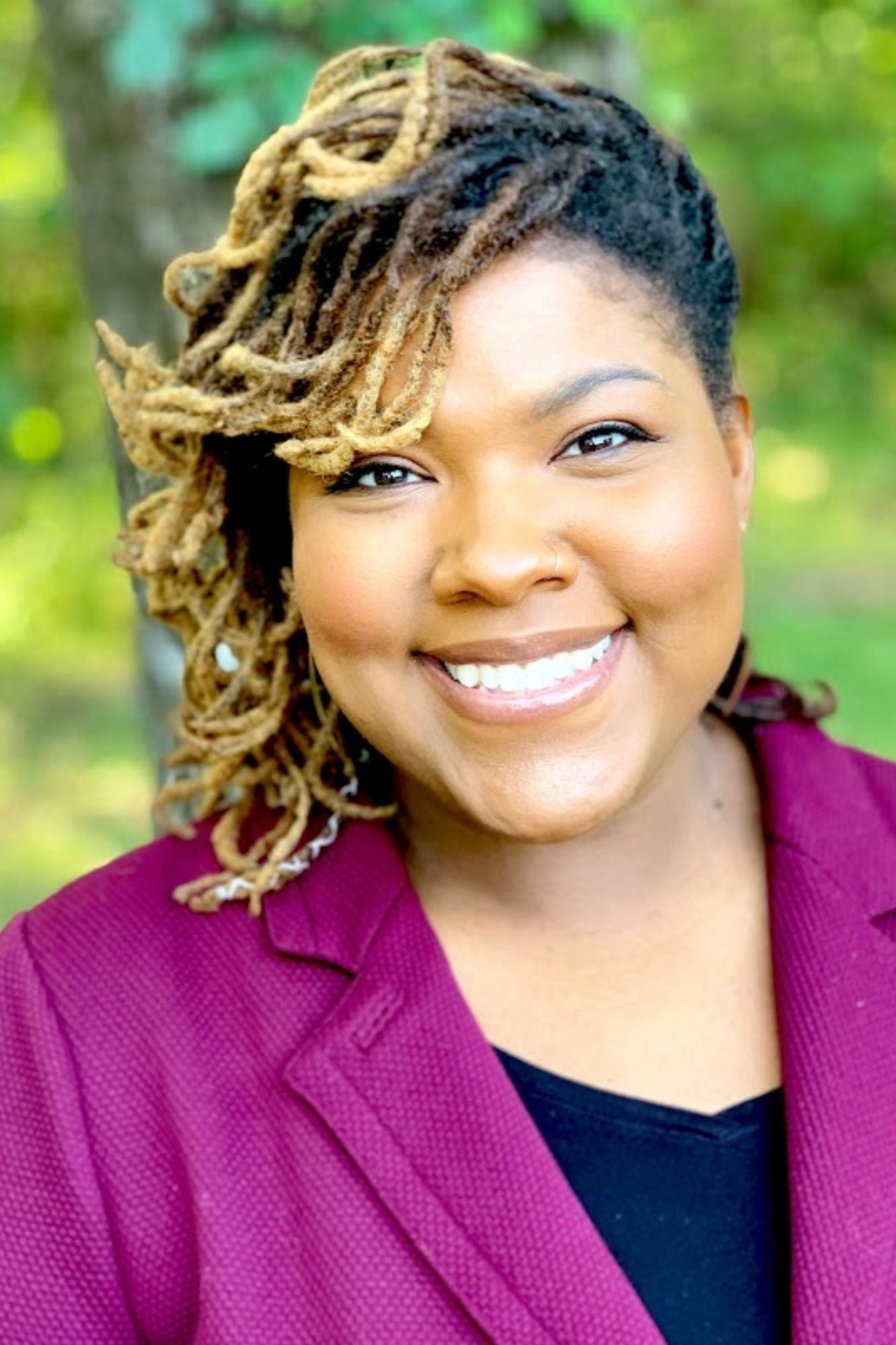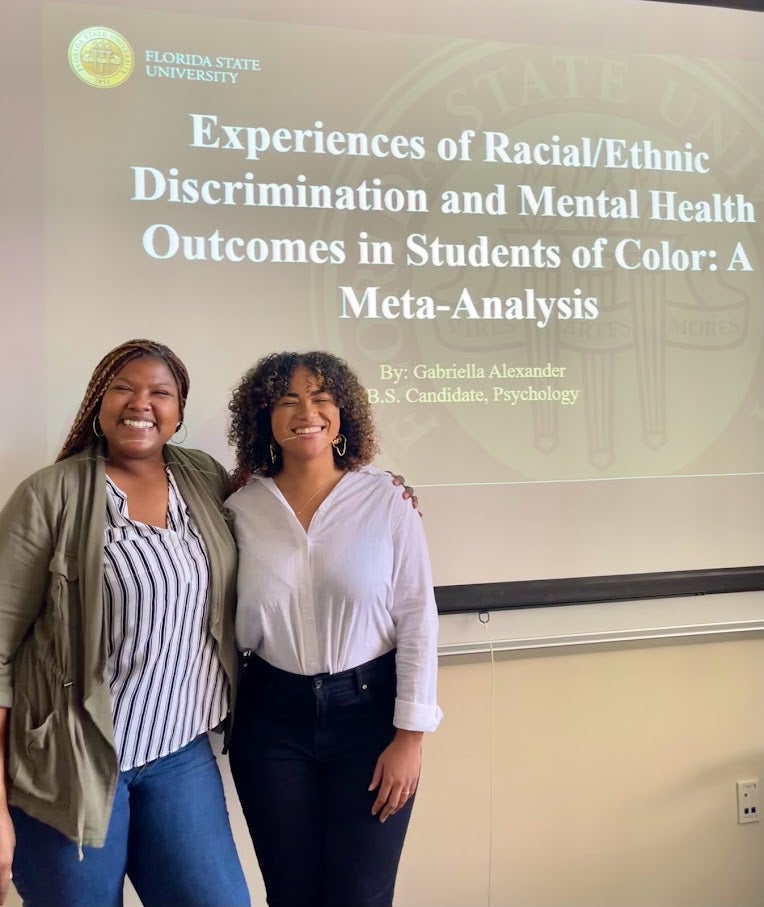Florida State University's College of Nursing welcomes Dr. Haughbrook to the Florida FIRST Program
TALLAHASSEE, FL- The NIH Florida FIRST program has hired Dr. Rasheda Haughbrook, an Assistant Professor from the Department of Psychology at Florida State University, to fill the fourth position in the cohort of researchers focused on mental health and chronic disease prevention research.
Dr. Haughbrook’s expertise lies in psychology, where she’s passionate about advancing research on the unique developmental differences of historically marginalized groups, in association with biological and environmental factors. Her academic journey, which began in Tallahassee in 2006, derived from a pursuit of understanding the complex relationship between genes, environments, and their impact on human development.
Dr. Haughbrook’s path started at Florida Agriculture and Mechanical University (FAMU), where she obtained her Bachelor’s degree in Psychology and a Master’s in Molecular Cell Biology. Her early academic endeavors delved deep into the molecular mechanisms of genetic and environmental interactions, exploring how external factors could alter DNA expression at the most fundamental level.
However, the turning point in her journey came when she took an interest in the work of Dr. Sara Hart, who would later become her advisor and mentor. Dr. Hart is an interdisciplinary researcher in developmental psychology. Her research departed from the molecular perspective, focusing on a twin model to dissect the interplay between genes and environments, the “nature” and “nurture” of child development.
“This new approach, known as behavioral genetics, opened my eyes to a broader understanding of how genes and environments worked together,” explained Dr. Haughbrook.
Working with Dr. Hart allowed her to explore how various contexts, including identity factors like race, ethnicity, and gender, played pivotal roles in shaping human development. Dr. Haughbrook’s identity as a Black woman became an essential lens through which she now examines these influences.
After collaborating and collectively learning from one another over the years, Dr. Hart expressed her admiration for Dr. Haughbrook’s passion for prioritizing minorized communities.
“She puts minorized children and their families at the forefront of her research. The nature of the research questions she asks focuses on minoritized children’s experiences and how those experiences can lead to health inequities,” said Dr. Hart.
One of the most fascinating aspects of Dr. Haughbrook’s work is her exploration of epigenetics, where environmental factors can influence the expression of genes. She explained how our genes are not static but instead are constantly switched on and off throughout our lifetimes. This innate flexibility means that our choices and environments impact our genetic expression, highlighting the importance of making healthy choices and championing for accessible healthcare. She cites examples from history, such as the Great Depression, where experiences of scarcity led to genetic changes in the following generations, resulting in health issues like obesity.
Her commitment to unraveling the mysteries of human development was rooted in her childhood experiences. Growing up in a disadvantaged neighborhood near Chicago, she witnessed firsthand the impact of adverse childhood experiences, poverty, and crime on her community. Driven by insatiable curiosity, she began questioning why specific environments looked the way they did and why some individuals had access to opportunities while others did not.
This early awareness of systemic inequalities forged her dedication to advocating for equal opportunities, mental health support, and enrichment programs for underprivileged youth. Dr. Haughbrook passionately believes in the power of translational research, emphasizing that scientific knowledge should not remain confined within academia but should be disseminated to empower communities and drive policy changes.
“I think as contemporary scientists, we have a job to translate scientific research for the masses. Science is for everyone, so we must come to a space where we can share, trust, and communicate effectively,” explained Dr. Haughbrook.
As a researcher with Florida FIRST, Dr. Haughbrook aims to bridge the gap between science and politics. She acknowledges the challenges, including the reductive thinking that often polarizes debates. She believes that fostering direct communication between scientists and legislators, or even the appointment of science communicators, could facilitate a better understanding of the nuanced findings from research.
Her dedication extends to the classroom, where she aims to inspire her students and ignite a passion for science, learning, and knowledge. Dr. Haughbrook shares her teacher experience and passion for courses like “Psychology of the African American.” Her courses attract students from various backgrounds, including those interested in fields like political science, social work, and mental health counseling. These courses provide a safe space for students to explore complex topics related to identity, racism, and systemic oppression. She is incredibly satisfied seeing her students engage with research and appreciates the opportunity to pass on her love for Academia to the next generation.
“I tell them about twin studies, achievement, social inequity, health disparities, and all these different things, and they get so excited about it! That's rewarding to me because they want to engage, and they want to learn, and they want to change the world around them,” expressed Haughbrook.
For Dr. Haughbrook, one of the most exciting aspects of this new role in the Florida FIRST program is the emphasis on team science and community engagement. Distinct from her colleagues in clinical roles, she describes herself as more of a basic scientist who aims to better understand the environments that shape individuals’ lives. While she is open to participating in interventions, her primary focus remains examining and unraveling these environments’ complexities.
Dr. Haughbrook expressed how learning about this position felt serendipitous and how the Florida FIRST program offers a glimmer of hope for addressing disparities in education and health equity. “I feel like this program was created specifically for me, a woman of color who's from this underprivileged background who wants to conduct research and be impactful but may have had to overcome some barriers along the way,” said Dr. Haughbrook.
Leader of the Florida FIRST project and administrative core, Dr. Frankie Wong, is just as excited for Dr. Haughbrook to join the cohort because of her ability to integrate epigenetic and population sciences for a more nuanced understanding of health status.
“Her background in developmental psychology adds a distinctive lifespan perspective for promoting health. I think she will be a major influence on her cohort for broadening their intellectual pursuits,” said Dr. Wong.
Dr. Rasheda Haughbrook is an enthusiastic and dedicated supporter of education and health equity, committed to studying topics related to Black communities. Dr Haughbrook has embarked on a remarkable career through challenging research landscape.
